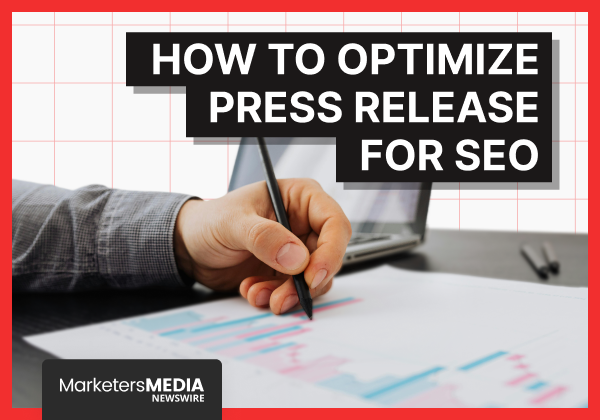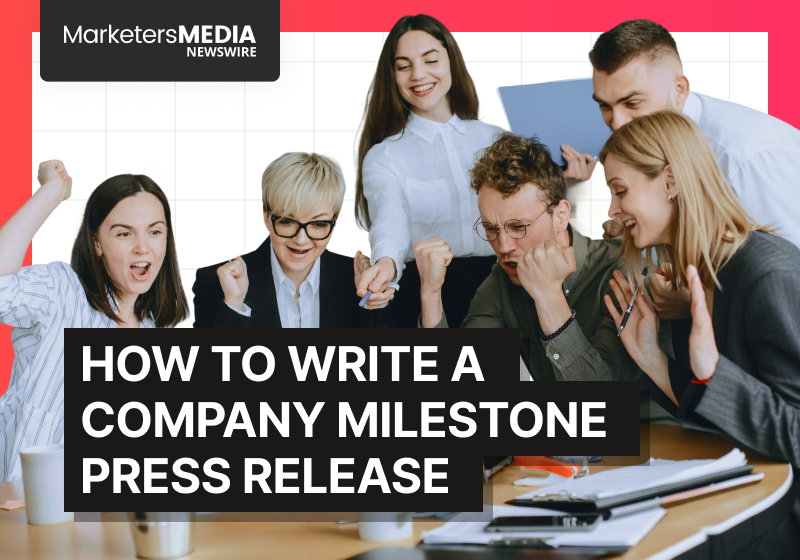Let's talk about press releases and their place in the SEO landscape. Once a go-to tactic for link building, press releases have seen their fair share of changes over the years.
But are they still relevant for SEO in 2024? Let's explore.
A Brief History of Press Releases for SEO
Press releases have been around for quite some time, but today, they play more versatile roles in SEO.
Back in the day (we're talking pre-2012), online press releases were widely used for link-building. Companies would churn out releases left and right, stuffing them with keywords and links, hoping to climb those SERPs.
It was a popular tactic but often utilized wrongly.
Then came Google's Penguin update in 2012, where the emphasis shifted from quantity to quality of links.
Google's Search Analyst, John Mueller later clarified that press release links are often overlooked due to their promotional nature:
But HOLD UP. Before you write off press releases for good, let’s get real for a second.
Even though Google might lead you to think press releases are dead, but the truth is, what they say doesn’t always play out in practice. Plenty of SEO pros will tell you—they still see value in using press releases smartly in their strategies.
Now, let's talk about some updates. In 2019, Google shook things up with the introduction of “nofollow”, “sponsored”, and “UGC” link attributes, further emphasized the importance of content quality and relevance.
Suddenly, it wasn't about how many links you could cram into a press release but about creating valuable, newsworthy content.
So, with all these changes, you might be wondering...
Is Press Release for SEO Still Effective Today?
Short answer? Yes, but not in the way you might think.
Look, if you're hoping to spam out a bunch of keyword-stuffed releases and watch your rankings soar, I've got bad news for you. That ship has sailed.
While spamming press releases might not boost your search rankings like they used to, they still offer a wealth of SEO benefits. Think of it as playing the long game – you're building brand awareness, credibility, and if done correctly, can still earn you high-quality backlinks from reputable sources.
Let's look at how.
How Press Releases Are Effective for SEO?
#1 Improving Brand Visibility and Awareness
Publishing a sharp, well-crafted press release puts your brand in front of a wider audience, enhancing your brand’s visibility.
Here’s a great example:
DMR News published a press release about launching their YouTube channel, and it successfully ranked highly for the keyword "DMR News."
This shows that press releases can boost overall visibility and help gain more recognition for the brand, even if it's the press release itself that ranks.
#2 Building a Strong Online Reputation
As your press releases make the rounds and more people bump into your brand, they start to see you as a legit player in the industry.
This doesn’t just happen. It’s about consistently putting out news that’s worth their time. A solid reputation means people are more likely to engage with your content, share it, and even look forward to what you have to say next.
Take LinkVector, for example.
By consistently putting out press releases, they dominated the top 10 search results for the keyword "linkvector."
This proves how a good press release strategy can really boost your online reputation and make your brand stand out in search results.
#3 Build Backlinks
While building backlinks should not be the primary aim of a press release, it is indeed a viable strategy, provided that you are not abusing them.
We have numerous success stories demonstrating the positive impact of our press release distribution. Our clients have seen improvements in SEO after publishing on reputable media partners like Business Insider, this, and that.
Here’s one of them:
SurgeGraph's press releases boosted their SEO with high-value backlinks, earning them the #1 spot for competitive keywords like 'Longform AI.'
That said, despite the benefits, what we want to really look for is the next point: attracting even more organic mentions or backlinks.
#3 Attracting Quality Backlinks
Now, when you’ve got a growing reputation and increased visibility, journalists and bloggers are more likely to take notice and might just give your story some space on their platforms.
Those are the links that we’re after because they come from reputable sources; and those links boost our SEO by making our site look more reliable to search engines, driving more visitors to our site.
#4 Expanding Your Reach
And with each share or mention, your press release starts traveling across the internet, reaching corners and communities you might not even know about.
This wider distribution does wonders for your online presence, making your brand a familiar name in more circles.
#5 Boosting Local SEO
Don’t forget the local angle. Including your business's NAP (name, address, phone number) in press releases helps anchor your presence in local search results, just like how Barry did here.
Each time your NAP is cited, it’s like reinforcing your spot on the local map, making you more visible in local search results and easier for nearby customers to find.
#6 Optimizing for Keywords
And throughout all this, let’s not overlook keywords. While you’re keeping it natural—no stuffing, please—you’re also weaving in keywords that your audience is likely searching for.
This isn’t about tricking search engines; it’s about making sure your press releases resonate with what your potential customers want to know.
Alright, we’ve covered the perks. But how do you actually tap into these benefits?
Crafting an effective press release is key. Let’s go over some tips to make sure your press releases stand out and work hard for your SEO.
How to Write an SEO-Friendly Press Release?
#1 Make it Newsworthy
The foundation of any good press release is genuinely interesting news. Focus on topics that are relevant and matter to your audience.
This could be a product launch, a big company achievement, or a groundbreaking industry solution, etc. If you’re wondering about what to write for your press release, check out this blog post with different successful press release examples for topic inspiration.
Remember, if it's not newsworthy, it's not worth releasing.
#2 Craft a Compelling Headline
Your headline is the first thing both readers and search engines will see, so aim for one that's attention-grabbing and informative.
Include your primary keyword naturally, but don't force it if it doesn't fit. While it's important to include relevant keywords, prioritize natural language over keyword stuffing.
Instead, integrate relevant keywords organically throughout your headline, the first 250 words, and meta descriptions. A strong headline not only attracts readers but also helps search engines understand the relevance of your content.
#3 Keep it Skimmable
According to TrueList, 81% of people skim the text they read online, with only 20-28% of the written words being read. So make sure your press release is easy to read.
Structure your press release using the inverted pyramid style—start with the most important information and then dive into the supporting details.
Use short paragraphs, bullet points, and subheadings to break up the text. Adding relevant images, videos, or infographics can also make your release more engaging and easier to digest.
This not only helps human readers but also makes it easier for search engines to understand and index your content.
#4 Use Links Wisely
Be smart with your links. Include just a few that add real value, and make sure the text you link (anchor text) clearly describes the content you're linking to. For example, instead of linking the text "find out more," use "download our new app features guide" if that's where the link leads.
Use "nofollow" tags for any promotional or sponsored links so search engines know not to count them. This keeps your SEO strategy clean and avoids penalties. Stick to high-quality, reputable sources and limit the number of links in your press release to avoid appearing spammy.
#5 Throw in Some Quotes
Including impactful quotes from key figures in your organization or industry can add authority and a human touch to your press release.
Quotes should provide insight or perspective, not just repeat the information already provided. They can make your release more engaging and shareable.
#6 Make it Easy to Reach You
Always include clear contact information at the end of your release. Add links to relevant pages on your website where readers can learn more or get in touch. This not only helps journalists follow up but also directs traffic to your site.
#7 Polish Your Content
Don’t rush this part—proofread your press release carefully before hitting send. Little errors can make a big difference in how your brand is perceived. Make sure everything is polished and professional. A spotless press release ensures your message comes through loud and clear.
Alright, so you’ve crafted an SEO-friendly press release. The next step is crucial—sharing it effectively.
Let’s talk about the best ways to distribute your press release and make sure it reaches the right audience.
How to Share Press Releases?
#1 Utilize Press Release Distribution Services
Using a press release distribution service, like ours at MarketersMEDIA Newswire can get your news in front of a large, targeted audience fast.
These platforms connect you with a vast network of media outlets, increasing the likelihood of your press release being picked up and shared.
By leveraging a distribution service, you save time and effort while reaching a broader audience. Plus, these services often offer analytics and reporting features to track the performance of your press release and measure its impact.
#2 Direct Outreach to Journalists and Bloggers
Consider reaching out directly to journalists and bloggers who cover your industry. Personalize your emails and highlight why your news is relevant to their audience. Building relationships with media professionals can lead to more in-depth coverage, valuable backlinks and ongoing media opportunities.
Remember, it's about quality over quantity – a single feature in a respected industry publication can be worth more than dozens of syndicated copies of your release.
#3 Sharing on Owned Media Channels
Don’t forget your own platforms! Sharing your press release on your company website, blog, and social media profiles helps you reach your existing audience and encourages them to share your news further.
#4 Email Marketing to Subscribers
Your email subscribers are already interested in what you have to offer, so make sure they’re the first to know about your latest news.
Send out an email with a compelling subject line and a brief summary of your news, linking back to the full release on your website. This can drive immediate traffic to your site and encourage sharing, potentially leading to more backlinks and social signals.
#5 Repurpose Content to Different Platforms
Why stop at just a press release? Repurpose your content into different formats – turn key points into an infographic, create a short video summarizing the news, or use it as a basis for a more in-depth blog post.
This approach helps you squeeze maximum value out of your content, engages different audience segments and creates multiple entry points for search engines to find and index your news.
So, there you have it. As you’ve witnessed in the beginning, a well-crafted press release can indeed work wonders for your SEO strategy.
And it’s all about creating valuable, newsworthy content that grabs attention and follows SEO best practices.
If you’re ready to enhance your SEO efforts with press releases, why not consider using a distribution service?
Here at MarketersMEDIA Newswire, we help get your story to over 2,000 media endpoints, including major outlets like Business Insider, AP News, Yahoo News, and Barchart.
If you’re ready to get started:
- Sign up an account.
- Select your desired plan.
- And start submitting your press release.
Distribute your press release with us today and see the difference it can make for your SEO strategy.
Free Press Release Template
Tell us where to send your PDF:








